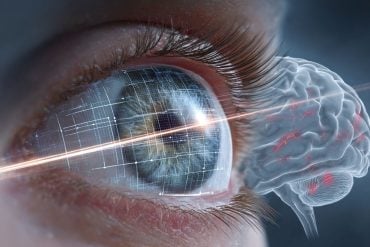Summary: People can infer hidden social preferences by observing how quickly others make decisions. The study used the Dictator Game to show that decision speed, even without knowing the actual choices, can predict preferences.
This finding challenges the notion that only choices reveal social preferences. Incorporating response times into predictive models offers a more nuanced understanding of human behavior.
Key Facts:
- Predicting Preferences: Decision speed alone can help predict social preferences without knowing the choices.
- Study Method: Participants used decision times from the Dictator Game to infer preferences.
- Enhanced Models: Response times provide a continuous measure, revealing preference strength and improving behavioral predictions.
Source: PLOS
Researchers led by Sophie Bavard at the University of Hamburg, Germany, found that people can infer hidden social preferences by observing how fast others make social decisions.
Publishing June 20th in the open-access journal PLOS Biology, the study shows that when someone knows the options being considered by another person, and they know how long it takes them to reach their decisions, they can use this information to predict the other person’s preference, even if they do not know what the actual choices were.
How do we know what someone’s social preferences or beliefs are when they are so often hidden and unspoken?
While past studies have focused on observing another’s choices, the new study takes a deeper look by examining both choices and decision time.
The researchers asked participants to play the Dictator Game in which a so-called dictator must choose between two options to determine how much they will give away or keep for themselves. After playing the part of the dictator, the participants were asked to observe other dictators and predict the preferred give/take proportions.
The amount of information provided to the participants varied; sometimes they knew the decisions, sometimes the decision time, sometimes both, and sometimes neither.
The researchers hypothesized that even without knowing the decisions, if they could see the options and know the decision speed, participants would be able to predict the preferences.
A computational modeling analysis showed that in theory, dictator behavior could be predicted from decision times alone using a reinforcement learning model.
But do people naturally internalize this type of mathematical model when observing others?
The answer was yes; the participants learned the dictator’s preferences when all they knew were the options and the decision times, although their predictions were best when they also knew the actual decisions.
This indicates that time was used when decisions were not available, which expands our knowledge about decision making in social contexts.
The authors add, “Our findings challenge the conventional belief that choices alone are the only piece of information one can use to understand others’ social preferences.
“By incorporating response times into models of how people learn from each other, we can make more accurate predictions of human behavior, as response times provide a continuous measure that reveals the strength of these preferences, offering a more detailed perspective.”
Funding: SG is supported by the European Research Council (ERC) under the European Union’s Horizon 2020 research and innovation program (Grant agreement No. 948545, https://cordis.europa.eu/project/id/948545). The funders had no role in study design, data collection and analysis, decision to publish, or preparation of the manuscript.
About this decision-making and social neuroscience research news
Author: Claire Turner
Source: PLOS
Contact: Claire Turner – PLOS
Image: The image is credited to Neuroscience News
Original Research: Open access.
“Humans can infer social preferences from decision speed alone” by Sophie Bavard et al. PLOS Biology
Abstract
Humans can infer social preferences from decision speed alone
Humans are known to be capable of inferring hidden preferences and beliefs of their conspecifics when observing their decisions.
While observational learning based on choices has been explored extensively, the question of how response times (RT) impact our learning of others’ social preferences has received little attention.
Yet, while observing choices alone can inform us about the direction of preference, they reveal little about the strength of this preference.
In contrast, RT provides a continuous measure of strength of preference with faster responses indicating stronger preferences and slower responses signaling hesitation or uncertainty.
Here, we outline a preregistered orthogonal design to investigate the involvement of both choices and RT in learning and inferring other’s social preferences.
Participants observed other people’s behavior in a social preferences task (Dictator Game), seeing either their choices, RT, both, or no information.
By coupling behavioral analyses with computational modeling, we show that RT is predictive of social preferences and that observers were able to infer those preferences even when receiving only RT information.
Based on these findings, we propose a novel observational reinforcement learning model that closely matches participants’ inferences in all relevant conditions.
In contrast to previous literature suggesting that, from a Bayesian perspective, people should be able to learn equally well from choices and RT, we show that observers’ behavior substantially deviates from this prediction.
Our study elucidates a hitherto unknown sophistication in human observational learning but also identifies important limitations to this ability.







